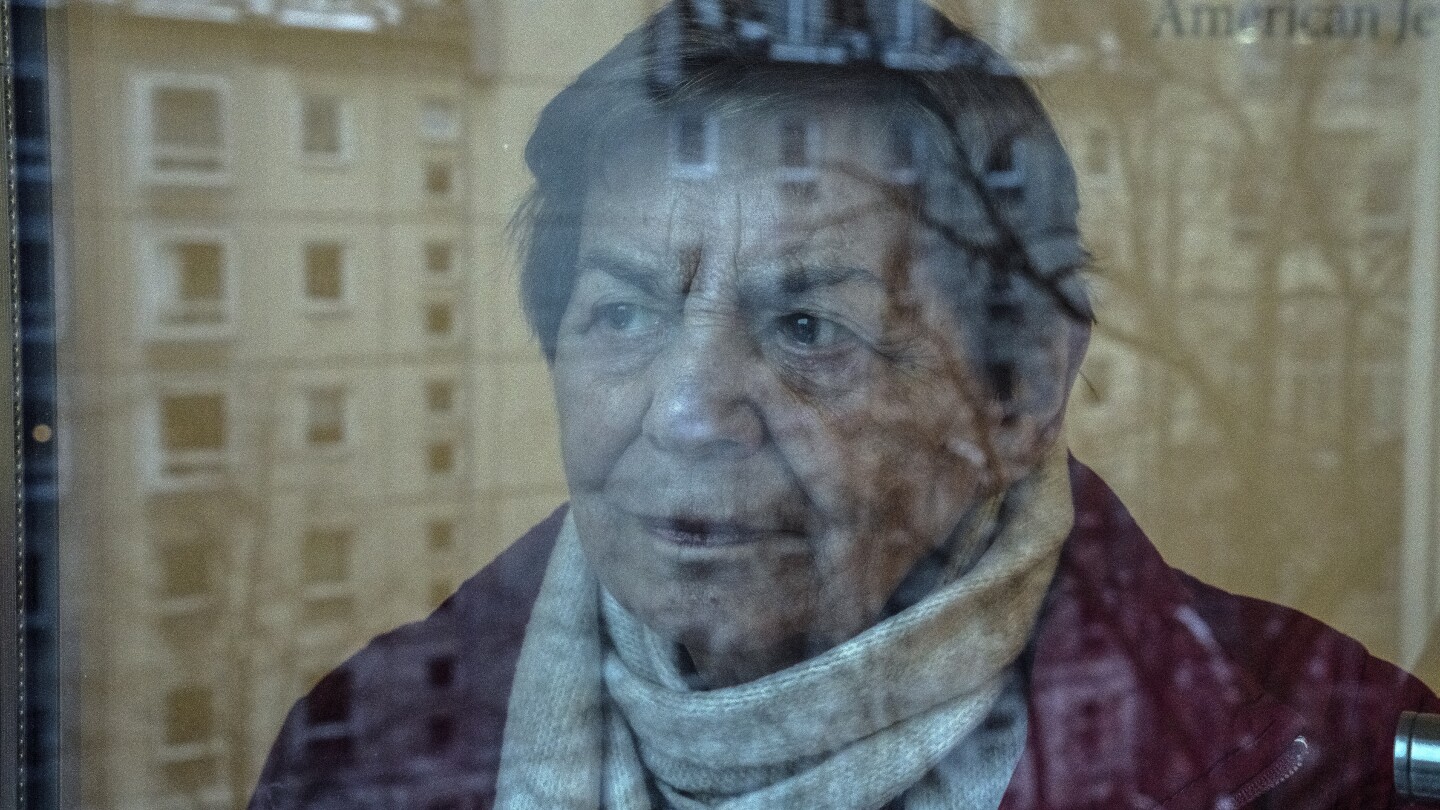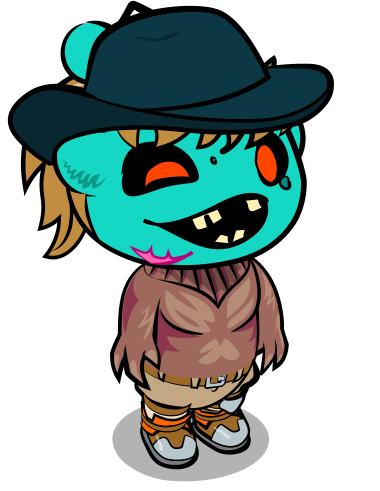Almost 80 years after the Holocaust, about 245,000 Jewish survivors are still living across more than 90 countries, a new report revealed Tuesday.
Nearly half of them, or 49%, are living in Israel; 18% are in Western Europe, 16% in the United States, and 12% in countries of the former Soviet Union, according to a study by the New York-based Conference on Jewish Material Claims Against Germany, also referred to as the Claims Conference.
Before the publication of the demographic report, there were only vague estimates about how many Holocaust survivors are still alive.
Their numbers are quickly dwindling, as most are very old and often of frail health, with a median age of 86. Twenty percent of survivors are older than 90, and more women (61%) than men (39%) are still alive.
There was 17 million Holocaust victims, 6 million were Jewish, so there’s a lot more Holocaust survivers than this.
https://en.m.wikipedia.org/wiki/Holocaust_victims
For some reason everyone forgets about them
What kills me is that after the war the allies left so many people still in the camps or moved them to other prisons.
Like being gay was still seen as bad despite Berlin being the gayest city in the world only a decade earlier and Germany was leading so much research and recognition into LGBT issues that wouldn’t happen again until decades later.
Just shows how quickly progress can be undone and how hard it is to rebuild.
As a population, Romani were hit harder. In terms of numbers, the Slavs (and communists in particular) were hit harder. Hitler considered both groups (Slavs and Romani) to be Untermensch. We haven’t forgotten them; it was caused by a policy of propaganda that also caused this change of opinion in France:

Romani today are still considered an underclass. There is still a blatant disregard for Slavic lives in the West. The change in public opinion for the Jewish people was never about being a victim of Axis imperialism in the Second World War.
Fr tho some American Leftists ahem…Chomsky will outright deny the Kosavan genocide in my opinion because of the disregard for Slavic life that you mentioned.
The brown people of Europe in a way
Kosovars (Kosovo Albanians) are not Slavs.
Thanks for informing me! I was inspired to go browse the Wikipedia article on Kosovo and learn more.
Where does Chomsky deny it?
Chomsky ignores lessons of wars on Kosovo
I have no idea if this is a fair book review but it does at least explain where the claim comes from.
And, FWIW, it does chime with the blindspots of late Chomsky, and a particular flavour of ‘left’ anti-imperialism which has developed over the last 30 years. His political writing is valuable but the man is not infallible and, of late, he has been very much the man with a hammer who only sees nails.
I read his book and I read this review, and I have to say it’s quite a stretch in both directions. Chomsky’s point was solely that US Imperialism and NATO doesn’t care about genocide and proves it with multiple examples in his essays. Does he bring up SOME flawed points? Sure, but all in all he still raises very good examples and what he asserts from those is valid.
That said, I have not read anything as of late from him. So you are probably right.
Partly due to the cold war, I suspect. Also because if you’re making a list of atrocities, the particularly gruesome stuff does tend to attract the audience’s attention.
I ‘recommend’ Come and See for those wondering what the Eastern Front was like. Almost certainly the best war movie ever made. The only reason it doesn’t rank higher in the best movies ever made, is because it’s not great repeat viewing.
Here it is on the official Mosfilm youtube channel, with subtitles.
the particularly gruesome stuff does tend to attract the audience’s attention.
It was just as gruesome regardless of if the victims were Jewish…
The first group sent to concentration camps weren’t even because they were Jewish, it was the people who disagreed political with the nazis and were organizing against them.
But even towards the end, the Jewish people weren’t singled out for worse treatment. Lots of groups were treated just as brutally.
That’s my whole point, we’re ignoring the majority of victims…
Oh, I know. As I said, partly due to the cold war. To be clear, not Jewish, but my grandmother spent time in Dachau. So she was arguably one of the victims who were partly ignored.
My point is that the extravagant anecdotes, like human skin lamp shades, or stories about the SS throwing sweets at children as they were buried alive, have become tropes. The kind of stuff does tend to grab your attention, so much so that people are likely to lose sight of the bigger picture, or worry about which proportion of a pile of emaciated corpses was or wasn’t Jewish.
Anyway, if you haven’t watched Come and See, I recommend it. Obviously, it’s not a fun watch, but it gives you an idea of how gruesome the eastern front was and some of what they went through at the hand of the nazis.
Not your comment, obviously - you’re right to point out that that Jews weren’t the only or majority of victims of the holocaust - but to be clear for those reading and as the relative of a holocaust survivor, even though I’m not Jewish I’m obviously not going to go along with any narrative that suggest the Jews exagerated their treatment during the holocaust. That’s a particularly deplorable but common narrative among the far right, especially in Russia, which they’ve partially been using to justify their war crimes in Ukraine. Hence why they see no irony in suggesting Zelenskyy is a Nazi, because they claim slavs were the true victims of the holocaust, with some even going so far as to suggest the Jews orchestrated the holocaust. Here’s a relevant article on that:
https://www.theguardian.com/world/2022/feb/25/vladimir-putin-ukraine-attack-antisemitism-denazify
You’re being disingenuous in your claim. The argument is that Zionists and Hitler cooperated in establishing a Jewish state (which is true: Hitler started out wanting to “just” ethnically cleanse Jews, not exterminate them). Conflating Zionists with Jews is wrong, but that’s where the claim that “Jews were responsible for the Holocaust” comes from. Similarly, the claim that “Slavs were the true victims of the Holocaust” comes from numbers: more Slavs were murdered in the Holocaust than Jews. It’s pretty silly to play “who’s the greater victim” in a genocide, but…
Here’s a relevant article:
https://www.smithsonianmag.com/history/first-moments-hitlers-final-solution-180961387
As mentioned, my non-Jewish (and in fact slavic) grandmother spent time in Dachau. In any case, I don’t feel your comment will lead to a productive discussion, so I’m afraid I’m going to block you. Hope you understand and perhaps approach the subject with a bit more tact next time around given its sensitive nature.
Have a good one.
Again, you’re attempting to conflate different aspects of Hitler’s ideology. Hitler had different opinions of different Untermensch… Because to him, although they were all subhuman, some were less human than others. The fact that your grandmother was not Jewish does not change the fact that Hitler’s solution to the Slavic problem was resolved before his solution to the Jewish problem.
Here is an alternative Piped link(s):
Here it is on youtube, with subtitles.
Piped is a privacy-respecting open-source alternative frontend to YouTube.
I’m open-source; check me out at GitHub.
Median age 86 after 80 years…that is a lot of former child prisoners.
deleted by creator
Oh hi! Mine was also in Dachau. Died years ago, though. You’re right they’re often forgotten.
She was also a ‘partizan’. Although in her case, she was a teenaged girl who according to her was handed a pamphlet then arrested as she walked around the corner reading it. Given we’re talking about the nazis and nazi collaborators, I doubt entrapment is the worst of the crimes, so seems plausible.
The thing with Dachau, and AFAIK other concentration camps, is that they weren’t actually one concentration camp but an entire complex. Each Konzentrationslager comprised a Stammlager (the main camp), Aussenlager(outside camp), Nebenlager(subcamp), and Arbeitslager(work camp).
So it’s likely that like my grandma, yours will have been sent to a subcamp, after being sorted in Dachau itself. That’s one of the reasons there’s less information about them. The ‘main attraction’ is so horrible, we forgot about all the subcamps where ‘only’ half of the prisoners died. She was probably the right age to do hard labour. Mine was almost certainly experimented on. Obviously she didn’t talk about it much, there was that time grandma tried to jump out of the car when we tried to take her to the hospital, ah childhood memories.
Covid was a bit weird though. Everyone was stockpiling, and it reminded me of my grandma showing me her secret stash of sunlight soap in the upstairs cupboard. As a kid, it seemed innocent, but in retrospect it was pretty obvious she was always prepared for the worst to happen again.
It’s interesting how trauma goes through the generations. Probably also explains some of the health issues we have as a family, given we now know that the children of holocaust survivors inherited epigenetic damage. Trauma’s basically passed on through the children’s genes.
Interesting how this has affected my view of the world, too.
Sorry, this was an overly long comment. I don’t usually get to talk about this at dinner parties. It’s a bit much and unrelateable for most people.
Thank you, that was fascinating. Especially the part about how trauma goes through generations.
Your grandmother is an incredible person. Don’t let her forget that.
Glad so many Jews could stay alive.
This is the best summary I could come up with:
They endured the atrocities of the Holocaust in their youth and were forced to rebuild an entire life out of the ashes of the camps and ghettos that ended their families and communities.”
Her younger sister Esther died of illness, hunger and exhaustion in March 1945, just weeks before the liberation of Berlin by the Soviet Red Army.
For its new report, the Claims Conference said it defined Holocaust survivors “based on agreements with the German government in assessing eligibility for compensation programs.”
It has also launched several educational projects that illustrate the importance of passing on the Holocaust survivors’ testimonies to younger generations as their numbers become smaller and antisemitism is on the rise again.
But in the 1990s, she was one day approached by a stranger who looked at her necklace with a Star of David pendant, asked if she was a Jewish survivor and whether she could talk about her experience to her daughter’s school class.
“When I started talking about the Holocaust for the first time, in front of those students, I couldn’t stop crying,” Winkelmann told The Associated Press last week.
The original article contains 997 words, the summary contains 186 words. Saved 81%. I’m a bot and I’m open source!







